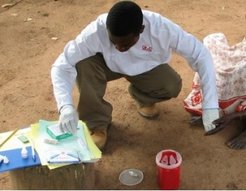Globalizing International Health: the cultural politics of ‘partnership’ in Tanzanian malaria control

This project, now completed, investigated the recent rise to dominance in international health of ‘partnership’, an organisational form that has become prominent in infectious disease research and control efforts in low-income countries around the world. Since the late 1990s, hundreds of large-scale transnational collaborative undertakings involving ‘partners’ from the public and private sectors and civil society have come into being. Fuelled by soaring donor funding for the reduction of communicable diseases in poor countries, the spread of partnership – a notion connoting mutuality and equity – occurred in contexts characterised by profound disparities in power and resources. These contrasts are particularly pronounced in international health, a field linking disparate people, interests, and places in the global North and South, raising the question of how partnership actually plays out in practice. This historically grounded ethnographic study of the partnership phenomenon poses two interrelated questions: How does partnership happen and how do we study the processes through which partnerships form and function?
Gerrets addressed these questions by examining a partnership engaged in malaria research and control in southern Tanzania. Malaria – a ‘disease of poverty’ that, without sufficient socio-economic improvements, often defies technological interventions – served as a socio-historical lens for exploring the changing relationships between science and governance during a century of international control efforts in tropical Africa. By tracking the knowledge practices of different parties, a pivotal activity in (health) development interventions, he traced the shifting contours and dynamic interactional structures of a partnership, analysing the indeterminate, sometimes contentious processes through which disparate agents and organisations sought to create a functioning whole. Exploring the often-derided elasticity and ambiguity of partnership in social reality, he investigated how it became enmeshed into patron-client dynamics, enabling influential actors to extend their power base by controlling resources and coercing subordinates. Finally, this study examined how sociocultural conventions and language practices during data collection shape, even ‘distort,’ expert knowledge about malaria.
The research has resulted in several publications and in a number of manuscripts. Another result from this study is a three-year ethnohistorical research project (funded by NWO/Open Research Area in Europe for the Social Sciences) examining, jointly with scholars from London and Paris, Memorials and Remains of Medical Research in Africa.
